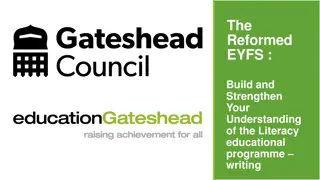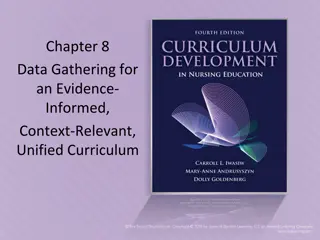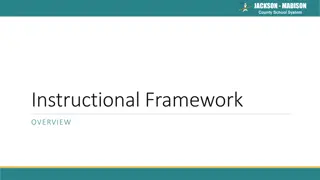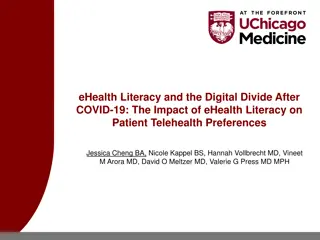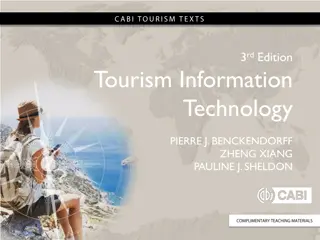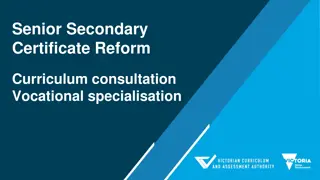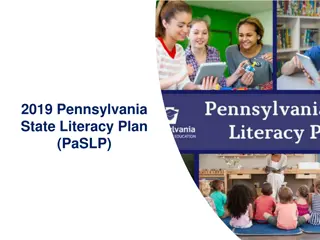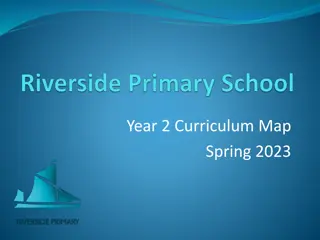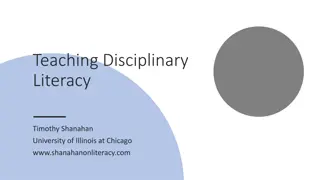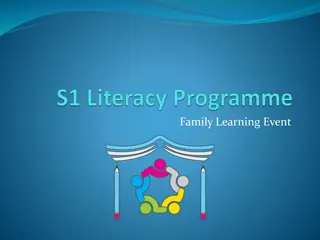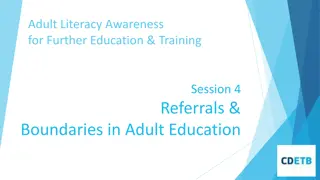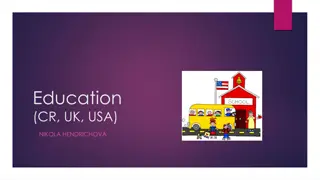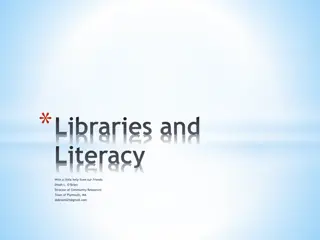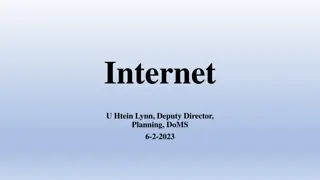Integrating Internet Literacy Curriculum for Secondary Education
"Explore a research-based curriculum, 'The Internet and Us,' designed to enhance Internet literacy among secondary school students. The program focuses on critical media literacy principles and teaches themes like history of the web, virtual sociality, and brain-behavioral science. Engage in participatory classroom activities and discussions to deepen understanding of digital media usage. Future directions include teacher training at UCLA Lab School for implementing the curriculum effectively."
- Internet Literacy
- Secondary Education
- Curriculum Design
- Participatory Culture
- Critical Media Literacy
Download Presentation

Please find below an Image/Link to download the presentation.
The content on the website is provided AS IS for your information and personal use only. It may not be sold, licensed, or shared on other websites without obtaining consent from the author. Download presentation by click this link. If you encounter any issues during the download, it is possible that the publisher has removed the file from their server.
E N D
Presentation Transcript
Introducing... the Internet Methods and design for an Internet literacy curriculum which adapts online participatory culture into the secondary-education classroom by coordinating factual instruction with informal learning formats. by Nephele Troullinos, mentor: Miriam Posner
The Internet and Us is a theoretical curriculum that aims to provide young students with a comprehensive understanding of the Internet within their secondary education. Informed by the principles of critical media literacy, this research-based course reconsiders the Internet thematically and guides students using alternative instructional formats to deepen engagement and learning the Internet in 6 themes Research Area New Ideas TeachingContent LearningMethod Syllabus [didactic component] x Participatory Classroom teaching the Brain & Behavioral Science of digital media use about the Internet. Methodology / Process Conclusion / Next Steps CML Review Literature Review outcome GSEIS Course Syllabi & Library Research Guides Applied Neuroscience PSYCH 79 UCLA Lab School Pedagogy newsletters, documentary films & series notes . collect resources . more notes . research-based curriculum with syllabus and instructional guide limitations hypothetical, few parameters the Challenge: How to synthesize / simplify ? moving forward refine with feedback from peers & mentors, adapt to real-time context: apply to research at UCLA Lab School How to engage middle-schoolers to reflect on the Internet and digital media in educational setting?
The Internet and Us Syllabus - informational content broken down into 6 themes - instructor aims to guide students through each module - moderates classroom activities, discussions, reflections the WWW How It Works History breadth of browser features and content a survey/timeline up until today & speculation of future developments physical & digital infrastructure / operations Virtual Sociality Social media platforms, computer-mediated connection and community Brain-Behavioral Science of internet & digital media use, human- computer-interaction Media Literacy Praxis concepts and educational principles to build skills and agency
Participatory Classroom The Internet and Us cognitively guided instruction direct modeling inquiry formal vs. informal collaboration affinity space simulations participatory performance cultures discussions
future directions : UCLA CONNECT Lab School Research Goals: complete comprehensive teacher training guide for curriculum Benefits of Research: an informed and trained teacher is able to facilitate personally motivated assessment of the internet, contributing to digital/online agency and deeper learning at an early age, aiming to improve safety, everyday use, and well-being online Subject Selection Criteria: 10-15 students of same age group, Upper I & II - ages 10 to 14 (middle school students), students remain with same group for at least 10 class sessions Methods / Instruments: intervention/new curricula, survey, observation, interviews (individual), interviews (group), simulations & activities using video, audio, writing, arts media


